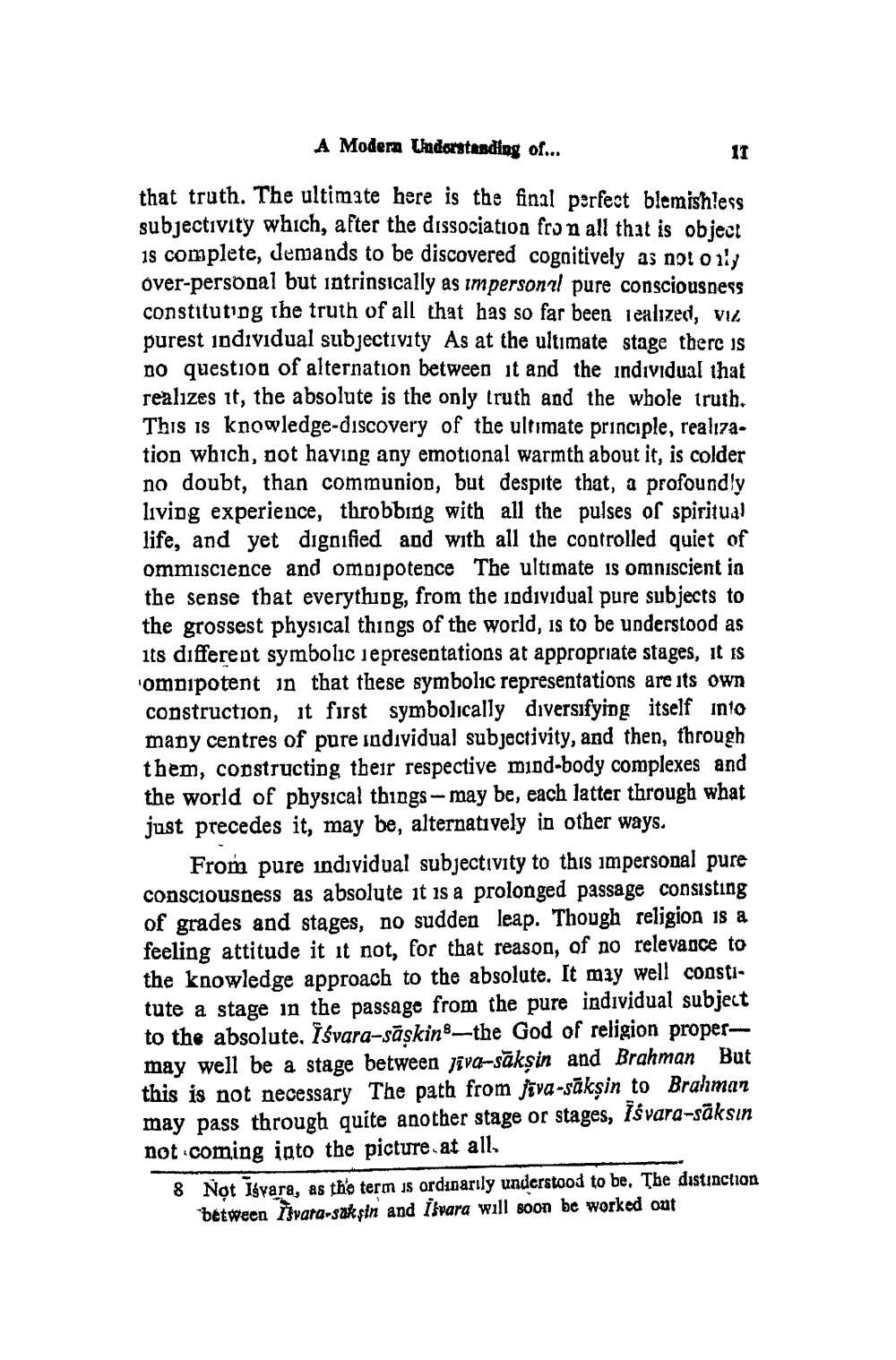________________
A Modern Understanding of...
that truth. The ultimate here is the final perfect blemishless subjectivity which, after the dissociation fro n all that is object is complete, demands to be discovered cognitively as not only over-personal but intrinsically as impersonal pure consciousness constituting the truth of all that has so far been realized, vil purest individual subjectivity As at the ultimate stage there is Do question of alternation between it and the individual that realizes it, the absolute is the only truth and the whole truth. This is knowledge-discovery of the ultimate principle, realization which, not having any emotional warmth about it, is colder no doubt, than communion, but despite that, a profoundly living experience, throbbing with all the pulses of spiritual life, and yet dignified and with all the controlled quiet of ommiscience and omospotence The ultimate is omniscient in the sense that everything, from the individual pure subjects to the grossest physical things of the world, is to be understood as its differeot symbolic iepresentations at appropriate stages, it is 'omnipotent in that these symbolic representations are its own construction, it first symbolically diversifying itself into many centres of pure individual subjectivity, and then, through them, constructing their respective mind-body complexes and the world of physical things-may be, each latter through what just precedes it, may be, alternatively in other ways.
From pure individual subjectivity to this impersonal pure consciousness as absolute it is a prolonged passage consisting of grades and stages, no sudden leap. Though religion is a feeling attitude it it not, for that reason, of no relevance to the knowledge approach to the absolute. It may well constitute a stage in the passage from the pure individual subject to the absolute. Isvara-sāşkins—the God of religion propermay well be a stage between jīva-sākşin and Brahman But this is not necessary The path from jīva-sākşin to Brahman may pass through quite another stage or stages, īśvara-säksin not coming into the picture at all. 8 Not Isyara, as the term is ordinarily understood to be. The distinction
between Iivara-saksin and Itvara will soon be worked out




